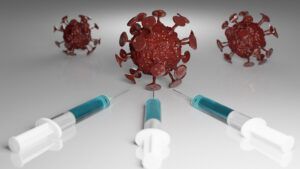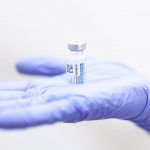The European Commission has granted a conditional marketing authorisation (CMA) for the COVID‑19 vaccine developed by Moderna, the second COVID-19 vaccine authorised in the EU. This authorisation follows a positive scientific recommendation based on a thorough assessment of the safety, effectiveness and quality of the vaccine by the European Medicines Agency (EMA) and is endorsed by the Member States.
The President of the European Commission, Ursula von der Leyen, said: “We are providing more COVID-19 vaccines for Europeans. With the Moderna vaccine, the second one now authorised in the EU, we will have a further 160 million doses. And more vaccines will come. Europe has secured up to two billion doses of potential COVID-19 vaccines. We’ll have more than enough safe and effective vaccines for protecting all Europeans.”
Stella Kyriakides, Commissioner for Health and Food Safety, said: “We are all in this together and united. This is why we have negotiated the broadest vaccine portfolio in the world for all our Member States. Today we are authorising a second safe and effective vaccine from Moderna, which together with BioNTech-Pfizer, will ensure that 460 million doses will be rolled out with increasing speed in the EU, and more will come. Member States have to ensure that the pace of vaccinations follows suit. Our efforts will not stop until vaccines are available for everyone in the EU.”
Moderna submitted on 30 November 2020 an application for marketing authorisation to EMA, which had already started a rolling review of the data in November. Thanks to this rolling review, EMA has been assessing the quality, safety and efficacy of the vaccine as data has become available. EMA’s human medicines committee (CHMP) has thoroughly assessed the data and recommended by consensus that a formal conditional marketing authorisation is granted. A conditional marketing authorisation is one of EU’s regulatory mechanisms for facilitating early access to medicines that fulfil an unmet medical need, including in emergency situations such as the current pandemic.
On the basis of EMA’s positive opinion, the Commission has verified all the elements supporting the marketing authorisation and consulted Member States before granting the conditional market authorisation.
The Moderna vaccine is based on messenger RNA (mRNA). mRNA plays a fundamental role in biology, transferring instructions from DNA to the cells’ protein making machinery. In an mRNA vaccine, these instructions produce harmless fragments of the virus, which the human body uses to build an immune response to prevent or fight disease. When a person is given the vaccine, their cells will read the genetic instructions and produce a spike protein, a protein on the outer surface of the virus which it uses to enter the body’s cells and cause disease. The person’s immune system will then treat this protein as foreign and produce natural defences — antibodies and T cells — against it.
Next steps
Moderna, with whom the Commission signed a contract on 25 November, will deliver the total amount of 160 million doses between the first and the third quarters of 2021. It will add to the 300 million doses of the vaccine distributed by BioNTech/Pfizer, the first vaccine to have been authorised in the EU on 21 December 2020.
Additional doses
On 8 January, the European Commission proposed to the EU Member States to purchase an additional 200 million doses of the COVID-19 vaccine produced by BioNTech and Pfizer, with the option to acquire another 100 million doses.
This would enable the EU to purchase up to 600 million doses of this vaccine, which is already being used across the EU.
The additional doses will be delivered starting in the second quarter of 2021.
The EU has acquired a broad portfolio of vaccines with different technologies. It has secured up to 2.3 billion doses from the most promising vaccine candidates for Europe and its neighbourhood.







Leave a Reply